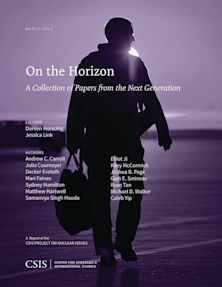- Home
- ACADEMIC
- Politics & International Relations
- Security and Strategic Studies
- Postcolonial Surveillance
Postcolonial Surveillance
Europe's Border Technologies between Colony and Crisis
Postcolonial Surveillance
Europe's Border Technologies between Colony and Crisis
You must sign in to add this item to your wishlist. Please sign in or create an account
Description
Postcolonial Surveillance investigates the long history of the European border regime, focusing on the colonial forerunners of today’s border technologies. The book takes a longue durée perspective to uncover how Europe’s colonial history continues to shape the high-tech political present and has morphed into EU border migration policies, border security, and surveillance apparatuses. It exposes the racial hierarchies and power relations that form these systems and highlights key moments when the past and present interact and collide, such as in panoptic surveillance, biopolitical registers, biometric sorting, and deterrent media infrastructure. The technological genealogies assembled in this book reveal the unacknowledged histories that had to be rejected for the seemingly clean, unbiased, and neutral technologies to emerge as such.
Table of Contents
Preface
Chapter 1: The European Border Regime: Conditions of Emergence in a Mediated World
Chapter 2: The View From Above: The Traffic of Non-White Bodies in the Mediterranean World
Chapter 3: Data on Bodies: Colonial Ordering from Windhoek to Lesbos
Chapter 4: Bodies of Data: (Early) Biometrics from the Colony to the Border
Chapter 5: Viral Deterrence: Sex, Risk, and Contagion ca. 1920 and 2015
Chapter 6: A Thousand Crises: Notes on the State of Exception
Works Cited
About the Author
Product details
| Published | Sep 08 2022 |
|---|---|
| Format | Ebook (Epub & Mobi) |
| Edition | 1st |
| Extent | 256 |
| ISBN | 9781538165041 |
| Imprint | Rowman & Littlefield Publishers |
| Series | Challenging Migration Studies |
| Publisher | Bloomsbury Publishing |
About the contributors
Reviews
-
Postcolonial Surveillance considers the long history of European border regimes, focusing on the colonial predecessors of today’s border technologies. Undertaking a longue durée approach to uncover how Europe’s pre-digital colonial history continues to shape the high-tech political present, Madörin shows how colonial practices live on in the European Union’s border migration policies, border security, and surveillance apparatuses. She exposes the consistent racial hierarchies and power relations that form these systems, highlighting key moments when the past and present interact and collide, such as in panoptic surveillance, biopolitical registers, and biometric sorting. This specialized work will appeal strongly to those researching surveillance regimes, racism, migration, and postcolonialism more generally. Highly recommended. Faculty, researchers, and professionals.
Choice Reviews
-
The multilayered, high-tech surveillance systems that guard Europe’s borders appear instrumental in facilitating the orderly and efficient movement of bona fide passengers and denying entry to ‘problematic populations.’ However, Anouk Madörin argues that beneath this façade lies appalling neocolonial policies and racist sorting principles that European governments, colonial companies, and elites have developed over centuries of colonialism and the trade of enslaved populations. The author argues her case forcefully and passionately. It is essential reading for those interested in critical surveillance studies, racism, migration studies, and colonialism.
Ahmad H. Sa'di, Ben-Gurion University and author of Thorough Surveillance: The Genesis of Israeli Policies of Population Management, Surveillance, and Political Control towards the Palestinian Minority
-
Colonial history and racial domination have often been the open secrets of border and migration scholarship, seen but not seen. Postcolonial Surveillance treats these absent presences as its most central and pressing questions, making this book a vital intervention in debates and struggles about borders today.
William Walters, Carleton University, Canada
-
This is an urgent and a much-needed book to help us think about the issue of migration beyond crisis and Europe’s technologized borders in relation to its colonial past. Analyzing contemporary cases, Anouk Madörin masterfully unravels the colonial fabric of contemporary surveillance technologies, underscoring the chronicity of what we call ‘crisis.’
Amade M'charek, University of Amsterdam

ONLINE RESOURCES
Bloomsbury Collections
This book is available on Bloomsbury Collections where your library has access.


































